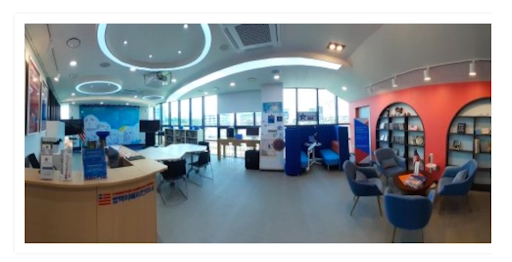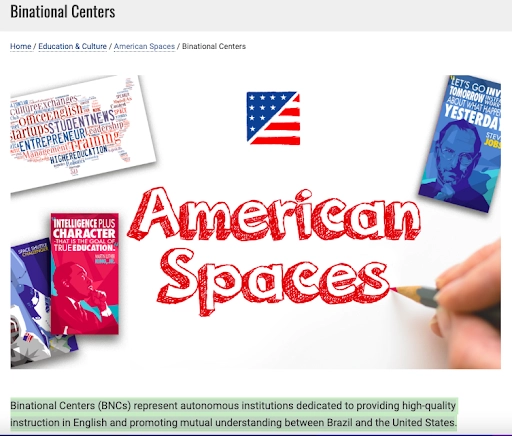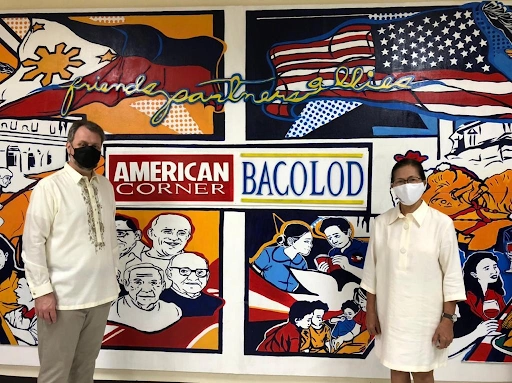Many career paths have people who are driven by a singular focus to get promoted above all else, and the Foreign Service is no exception. This mindset can lead to understaffing in organizations that are not considered “career enhancing” or particularly known for leading to promotion. However, such organizations have benefits, such as providing job opportunities for people, such as women, who have encountered discrimination during their career. Elizabeth Hopkins dedicated much of her career to staffing the Bi-national Center, an organization that provided English instruction abroad, but often struggled to find employees willing to remain assigned there. Even so, Hopkins was able to change the lives of many employees who crossed her path.
A woman named Gloria Wasielewski Kreisher sought to join the Foreign Service at the young age of twenty-one. Hopkins was quick to notice that Kreisher’s age pointed to someone possibly under-prepared for such an intense line of work and advised Hopkins to get more experience before joining the service. After following Hopkins’ advice, Kreisher gained more experience and was able to join the Foreign Service two years later through the Bi-national Center. After working at the center for a few years, Kreisher was asked to join the regular service as a secretary. Hopkins saw this offer for what it was, a choice that would limit Kreisher’s career advancement, and warned Kreisher accordingly. Kreisher turned down the offer.
Kreisher went on to thrive in the Foreign Service, getting married, managing a fruitful career, and visiting many countries. Had Kreisher not taken Hopkins’ advice to turn down the secretary position in the service, she may have had a different career trajectory. Hopkins would claim that this is why organizations like the Bi-national Center are so important; they provide advancement opportunities for people who would be overlooked in the regular service. Hopkins’ dedication to this mission changed the lives of many who were interested in joining the service.
Hopkins’ held a brief position in the State Department before dedicating her career to developing the Bi-national Center. In her position at the center, Hopkins focused on staffing, grant management, and improving the life of employees. Her efforts resulted in increased funding and opportunities for those working at the center. Without her contributions it is unlikely many would have found working at the Bi-national Center a viable option.
Hopkins’s interview was conducted by G. Lewis Schmidt on July 24, 1989
Read Hopkins’ full oral history HERE
Drafted by Briana Harmon
ADST relies on the generous support of our members and readers like you. Please support our efforts to continue capturing, preserving, and sharing the experiences of America’s diplomats.
Excerpts:
“Gloria, if you’re asking my advice, don’t do it because you’ll get tagged as a secretary and you’ll have a hard time getting out of it.”
Life Changing Advice:
HOPKINS: We wanted them to have some additional experience. Do you know Gloria Wasielewski Kreisher?
Q: Yes.
HOPKINS: She came to me when she was 21.

She had just graduated from, I believe it was UCLA, and had also gone to the American Institute for Foreign Trade. I said I didn’t think that a girl of 21 should be sent overseas. She hadn’t had any real teaching experience, although she was marvelous in languages. She had excellent Spanish and Portuguese. She went back and got some experience and came back two years later when she was 23 and we hired her.
Q: She’s still working?
HOPKINS: Yes, she’s in Rome. I think she has done well in the Foreign Service.
Q: I knew Gloria primarily when she was in Turkey when I was over there. She got married in Turkey.
…
HOPKINS: Three years ago I went over to England to visit relatives. I stopped over in Rome and spent nine days with Gloria. Now she speaks excellent Italian. She does a lot of traveling out of Rome to other countries.
Q: She’s sort of a regional officer now?
HOPKINS: Yes, she’s a regional English teaching officer and sets up seminars. She’s even been to China. I think her time is going to be up this September or October unless they persuade her to stay on a little longer. This is supposed to be her last tour. She has a condominium there in Washington where, I think, she plans to live after she has retired. She can give you a lot of background since she’s been in the program so long.
Q: Did she go into the regular service?
HOPKINS: Well, she stayed in the Binational Center for a long time. Somebody suggested that she transfer to the regular service as a secretary. I said, “Gloria, if you’re asking my advice, don’t do it because you’ll get tagged as a secretary and you’ll have a hard time getting out of it.”
So she was in for quite awhile. She always said she thanked me for that advice because when she came in, she had gained some valuable experience. She became director of courses in Mexico, one of the biggest centers. When she came into the Foreign Service, she came in at a good grade and she’s worked up from there.
“…by changing the regulations, as I said before, grantees could get many more benefits. We would send them over to the regular travel and the travel people would take care of the whole family just as if they were in the regular program. This made life easier for everybody.”
Making Life Easier for Everybody:

Q: For the grantees, was there—I never was quite clear on this—was there ever a system of allowances on housing, for example—allowances as there were with regular Foreign Service people?
HOPKINS: We worked into that. At first, the regulations made no provision for that so the total grant would include enough to cover applicable allowances.
Q: In other words, it was always covered by the grant. It wasn’t identified per se as a housing allowance?
HOPKINS: No. Then we finally had new regulations. Also, in the early days of the BNC Program, we only paid the travel of the person who was on grant. Well, not always, because we had several couples where the wife was also a teacher, had linguistic ability, etc., and was thus also allowed travel. So we would give her a part-time grant so we could pay her travel. We finally had regulations which permitted us to provide the grantees with specified allowances, travel for families, and many of the benefits which regular Foreign Service personnel received. In one instance, we sent a man to Mexico as director and his wife who had really good qualifications, as a Director of Courses. I always tried to save the department money, so I sent a telegram down giving all of his qualifications and everything and said “wife can be hired locally.” You remember Abbie Lincoln in the State Department?
Q: Yes.
HOPKINS: Well, she and I were good friends. She called me and said, “Ms. Hopkins, how do you know he wants to hire a wife?” So I had to change the telegram and say his wife is qualified and may be hired locally.
Q: Until that was worked out, initially the principal was sent but he had to finance his family’s trip to the country?
HOPKINS: Yes, but included everything we could in the total grant.
Q: Was there any home leave arrangement provided?
HOPKINS: No, not automatically. I don’t know how much of this you want to get into. This was one reason we had to have new regulations, so we could let them have official home leave when they came up for training prior to transferring or returning to the same port.
Q: They were still covered by a salary under the grant?
HOPKINS: Yes, that’s right.
Q: So although there was no official home leave—
HOPKINS: Not official, but by changing the regulations, as I said before, grantees could get many more benefits. We would send them over to the regular travel and the travel people would take care of the whole family just as if they were in the regular program. This made life easier for everybody.

TABLE OF CONTENTS HIGHLIGHTS
Background
Born in Henderson, Kentucky
Education
BA in English and Sociology
University of Utah and New York University
Joined the State Department prior to 1943 Bi-national Centers (BNCs) 1943–1970
